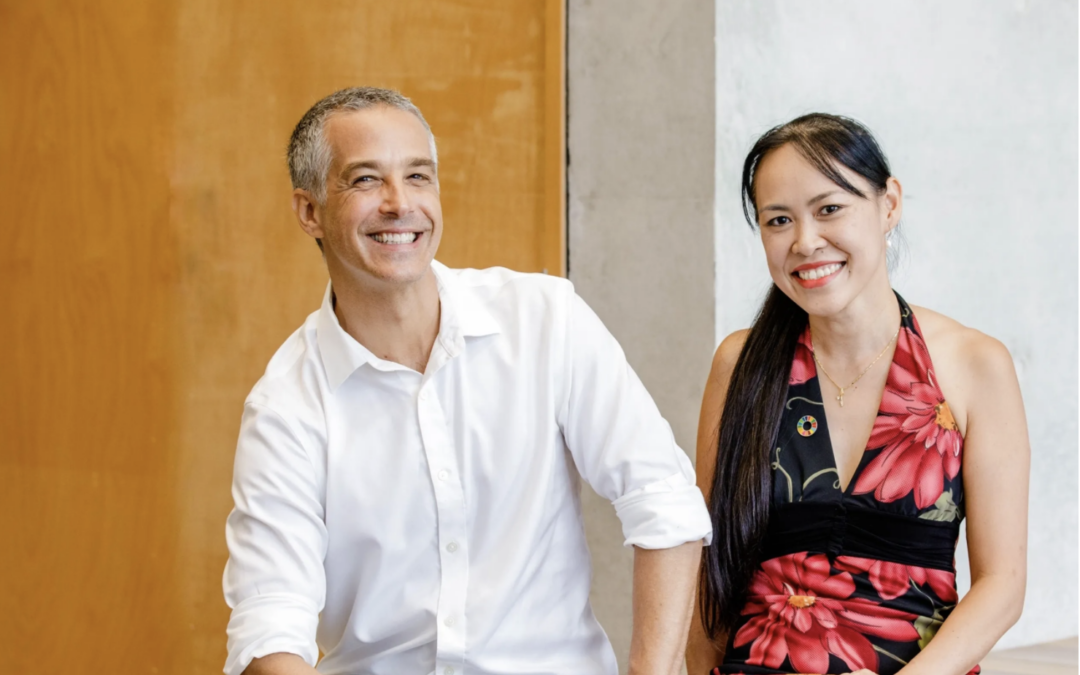EWB Australia is partnering with FuturEcook – a social enterprise that improves health, education and the environment with smart electric cooking for schools and other institutions in Cambodia. Donate to our joint fundraising campaign so we can make start!
Across the globe, four billion people lack access to clean modern cooking, and the majority of the people impacted are women and girls. Building on the success and impact of social enterprise ATEC – which provides clean cooking solutions to households across Cambodia and Bangladesh – FuturEcook aims to bring clean cooking to schools and institutions across Cambodia.
Driving the FuturEcook social enterprise is Dr Anh Tran, who worked and volunteered in Cambodia with Engineers Without Borders Australia over a decade ago. Since then, she has worked in partnership with the UN World Food Programme in Lesotho, Kenya and Armenia, as well as with the Modern Energy Cooking Service programme based at Loughborough University, UK. But for Anh, the social enterprise is more than just her professional calling. It’s personal.
“As the daughter of refugees, I am very fortunate to have the opportunity to give back and do more. Even though access to affordable and clean energy is one of the UN’s Sustainable Development Goals, the problem is that energy for cooking is not a priority, because cooking is seen as a woman’s role. There’s a massive gender divide,” explains Anh.
Dr Tran said that improved health and social outcomes are at the core of clean cooking. Smart electric cooking services are key to breaking the dirty charcoal cooking habit in schools and institutional settings.
“Because cooking is often done with firewood, women are exposed to black carbon and fine particulate matter. And as the women mind the children, these already vulnerable groups are the most exposed. This is really detrimental to their health – especially to their lungs – and since COVID, the problem is only more severe.”
And of course, the other problem that comes from cooking with firewood and charcoal is the negative environmental impact.
Alongside Dr Tran is UQ researcher and FuturEcook co-founder Dr Andrew Pascale, as well as a team of volunteers. The plan is to provide a scalable product and service model, one that takes all considerations into account: operations, maintenance, delivery and disposal.
EWB Australia has had a long history with developing and delivering clean cooking solutions in Cambodia. The ATEC* biodigester was born from an EWB University Challenge project, and is now a successful social enterprise of which EWB Australia remains a partner. The system converts animal, green and kitchen waste into biogas and organic fertilizer, providing clean, off-grid energy and appropriate sanitation. With a focus on household, it has the power to cover all household cooking needs and supply 20 tonnes of organic fertiliser for crops, per year, as well as improving day-to-day household life by removing the indoor pollution and labour associated with woodfuel cooking.
ATEC has raised incredible awareness of the importance of clean cooking. FuturEcook will leverage this award-winning work done at a household level, and will support expanding such systems into schools and institutions.
A joint fundraising campaign aims to raise $60,000 which will enable EWB and FuturEcook to commence a pilot with a school community in Cambodia. Make your donation here!
Listen to Anh speak more about the initiative recently on ABC Radio.


